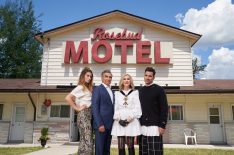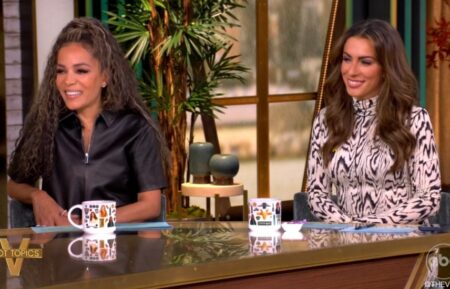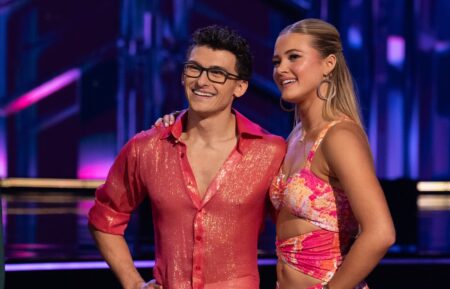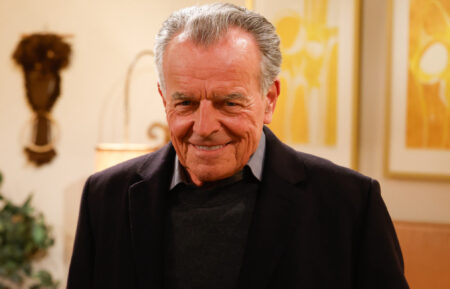Master Class: Norman Lear & Daniel Levy Interview Each Other
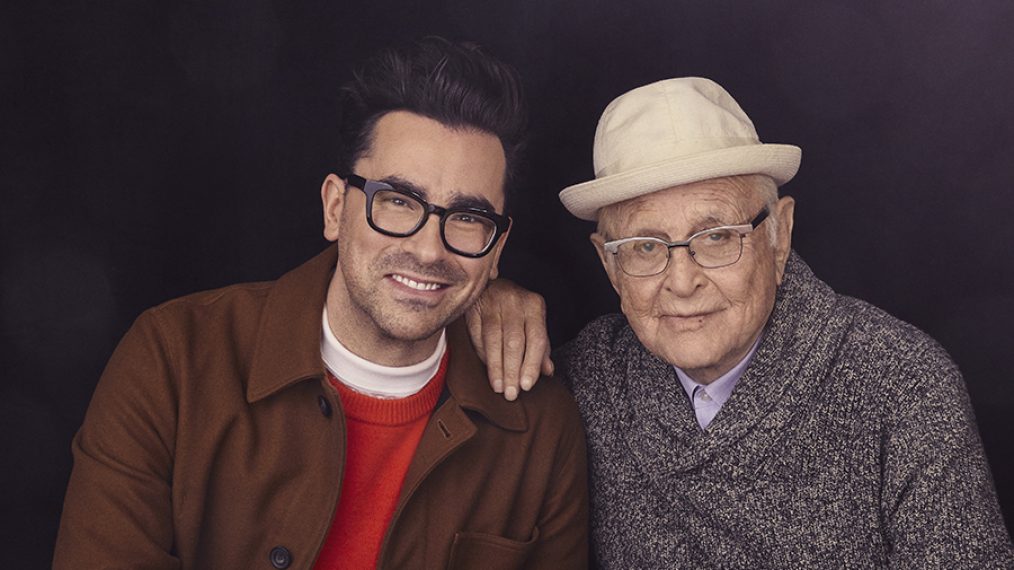
We’re in the business of starting provocative conversations about television. That’s why we’re launching a new interview series in which we literally start a conversation. We’re pairing icons and stars on the rise for freewheeling chats about how they bring their own brand of magic to the small screen.
First up: five-time Emmy winner Norman Lear, 97, who developed the envelope-pushing sitcoms All in the Family, The Jeffersons, and the recently rebooted One Day at a Time, and Daniel Levy, 36, cocreator and star of the Emmy-nominated Pop TV comedy Schitt’s Creek.
They sat down with us in L.A. the day after January’s Critics’ Choice Awards to swap opinions on everything from celebrating human flaws to loving Fleabag.
Daniel Levy: I can’t tell you how much of a thrill this is for me.
Norman Lear: I appreciate that, but it is for me too.
Levy: Wow.
Lear: Here’s a fact in my life: It has taken every split second of the time I’ve been alive to get to this moment. Undeniable, isn’t it?
Levy: And now here we are in the present talking! There’s been such a resurgence in “kind comedy” — comedy that celebrates human flaws and celebrates all the good and the bad — and I really feel like you started that wave.
Lear: “Kind comedy.” I like that.
Levy: I started making Schitt’s Creek and didn’t know necessarily that people would respond in the way they have, but I did know that we were doing something special.
Lear: But were you doing something you had to do and that you wanted to do? It was no question in your mind, right?
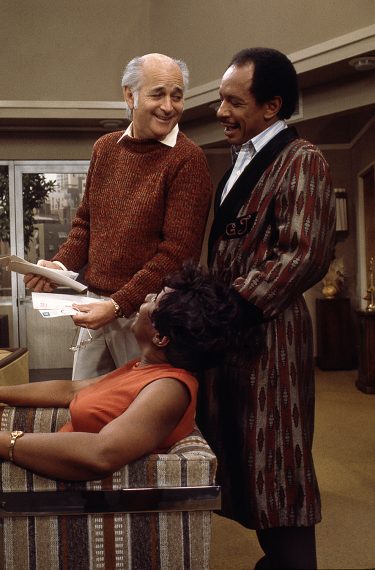
(Brian Hamill/Getty Images)
Levy: Right! Did you have to fight really hard in order to keep your singular vision running and that heartbeat pulsing through your shows?
Lear: I had all the fights and all the different lessons, I’m sure you can imagine.
Levy: What are your thoughts on television these days?
Lear: I think we are a nation, if not a world, of excess. I think there’s too much of everything. I don’t know how it could be good for humanity. Too much. I was very glad I saw [the raunchy Prime Video comedy] Fleabag last night. I was late getting to it. But it shouldn’t have taken [me] several years, and I don’t mean because I’m something special. But like everybody else, I have so much to do and so much to see and support.
Levy: At least you found it eventually. It’s a wonderful time for TV because a lot of TV is getting made, but it’s a tricky time for TV because not a lot of TV is lasting.
Lear: Is there something you want to do that you haven’t been able to yet?
Levy: We just finished our sixth and last season of Schitt’s Creek. In my mind, [Season 6] was when the story was done, and yet I’ve heard from people, “Your show’s doing well — why don’t you just keep going?” But I respect the viewers too much to stretch the show past its expiration date.
Lear: There are some people in your audience who believe it hasn’t reached the expiration date.
Levy: Let’s hope that it has because otherwise I would have made a terrible mistake! [Laughs] Probably the biggest question I have for you is, how do you shed a previous show in order to be open to creating something new?
Lear: My mind goes to living at 68 Woodstock Street [where Lear grew up in Hartford, Connecticut]. On [one] side of me was a home and a family, and they were so different from the people on [the other] side. And across the street there’s another one.
Levy: Did you ever have any fears or apprehension about continuing the legacy of your work?
Lear: Legacy? No. Are you married?
Levy: No.
Lear: I started off broke, so I was working to make a buck and support a family. I was married and already had two kids. That is really what I was doing. I didn’t have any idea I was going to break a mold or do something nobody had done before. There was a touch of [bigoted All in the Family patriarch] Archie Bunker in my life [in my father, Herman], so those are the people I had known in one fashion or another.
Levy: So writing came almost out of necessity? The fact that you just had to employ yourself in some capacity?
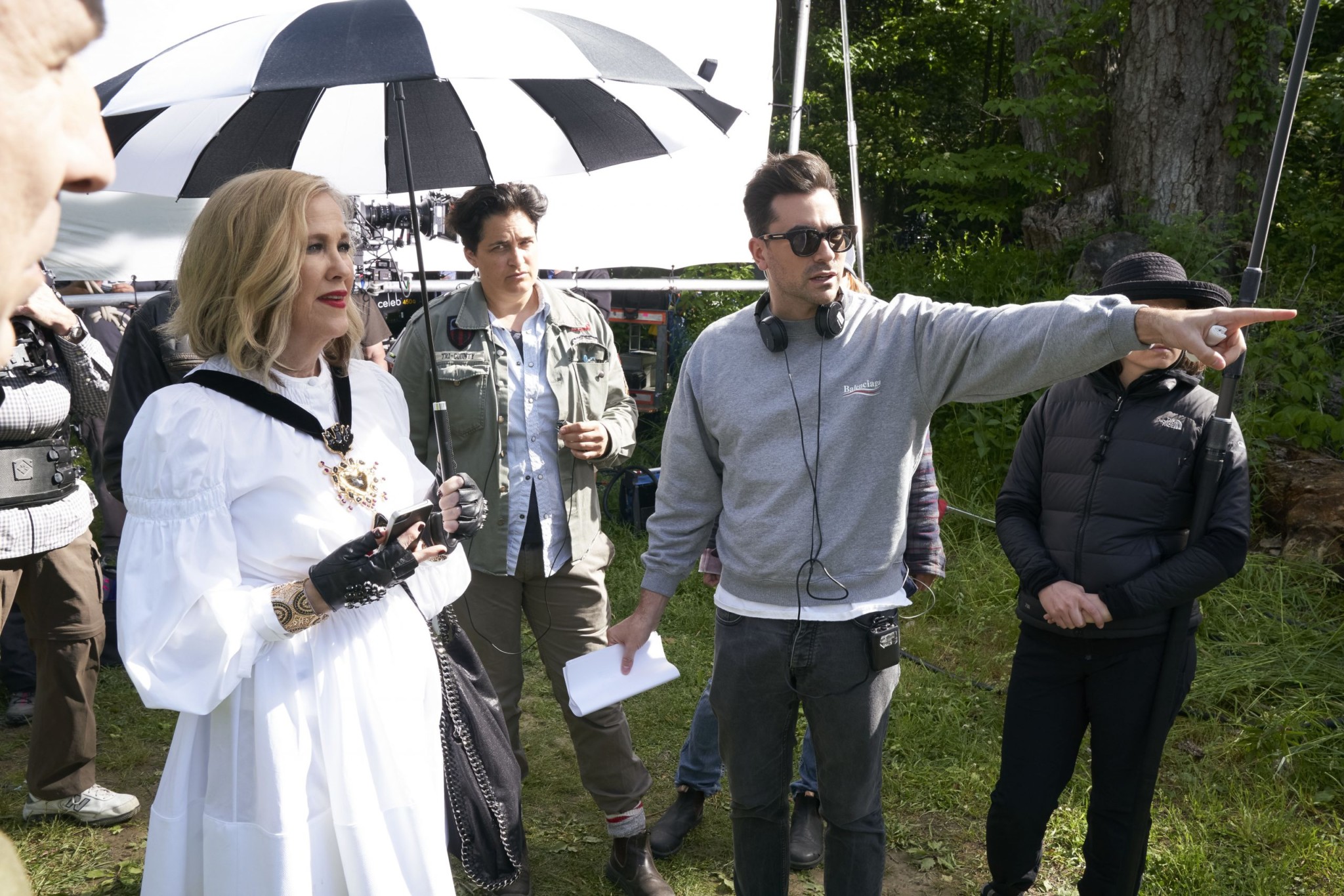
(Courtesy of Levy/Instagram)
Lear: Yes, it was all I knew to do.
Levy: Funny, when I was 15, my parents dropped me off in front of a clothing store and said, “Don’t come out until you have a job application.” And I really feel like that has been the motivating factor through my entire life! When I started this show, it was like, “Well, I’ve got to do something, and let’s just try something.”
Lear: Oh, that’s a great story. Where’s your dad? [Levy’s father is actor Eugene Levy, who cocreated and stars on Schitt’s Creek.] I go back a long way with him. I owe him time.
Levy: He’s actually upset that I’m the one doing this interview because he wanted to do it! [Both laugh] We were talking about Archie. How do you go about creating characters that transcend likability because they ultimately come off as human, both good and bad?
Lear: It’s the way I look at humanity. There’s something to love in everyone. I love this line — I can’t remember who said it: “Each man is my superior in that I may learn from him.” [Editor’s note: The quote is from writer Ralph Waldo Emerson.] I think that is 1,000 percent true.
Levy: It’s true.
Lear: I’ve never doubted it.
Levy: So, I am gay.…
Lear: Am I supposed to know that beforehand?
Levy: No, I’m not going to wear a badge. [Both laugh] Your shows have always incorporated LGBTQ characters at times when we were not represented. Was there a challenge for you to get those characters on television?
Lear: I don’t remember a big to-do about it. And it may be because we had already had a bigot [in Archie]. Do you know who the first gay character [on television] was?
Levy: No, do you?
Lear: Yes! [On All in the Family, Archie’s son-in-law] Mike [Rob Reiner] had a [flamboyant] friend [played by future General Hospital star Anthony Geary] over who Archie believed was gay [in the 1971 episode “Judging Books by Covers”]. Archie went crazy. He left the house and went to Kelcy’s bar. And his friend Steve [Philip Carey] had been a linebacker on a professional football team, and they’re arm wrestling when he asks Archie, “How long have you known me? Did you ever hear me talk about being in love with a woman?” And little by little on Archie’s face is the understanding that his friend, a football player no less, was gay.
Levy: And no pushback on that! At the time it was so progressive. You were just showing people as they were.
Lear: Well, that’s the lesson.
Levy: Exactly. But we’re still pushing to do that now, 50 years later.
Lear: Not as much.
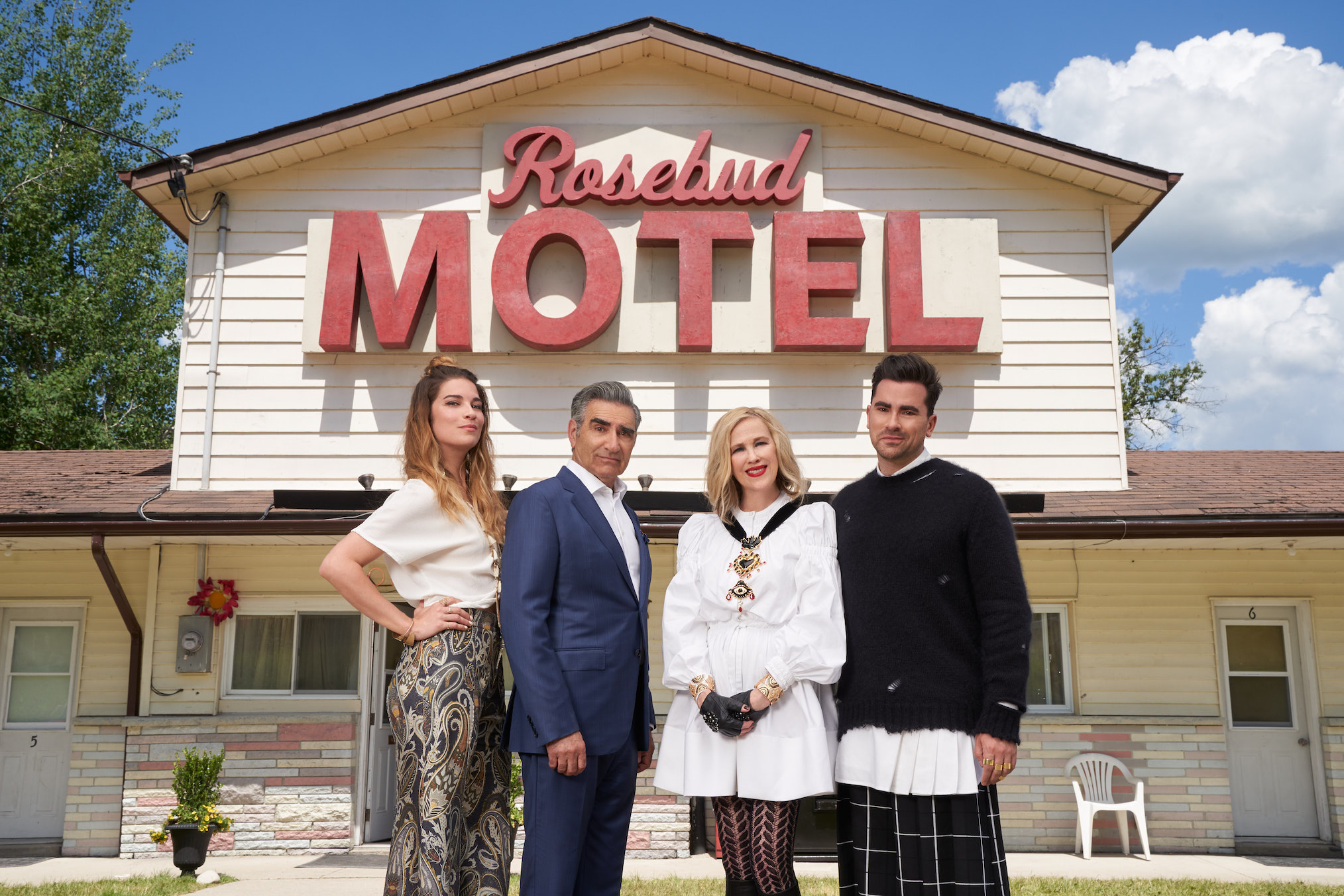
(Pop TV)
Levy: Not as much, but there’s still a tendency to play it safe as opposed to really telling stories that mean something. So thank you for telling stories that have always meant something.
Lear: You’re welcome.
Levy: In everything my dad has done, his key ingredient has always been “Find the heartbeat in anything you do.” And I think what ultimately has made our show affect people is we’re offering a hopeful story. We’re offering something joyful. People want lightness and people want safety. And I think that what’s so transformative about television is you have a safe place to come to every week —
Lear: I love that.
Levy: — and I guess my question is, is there an ingredient that you would say is valuable or necessary in making great television?
Lear: It would be what you just said.
Levy: Well, I’m glad to have answered my own question.
Lear: You. You’re the ingredient!
Levy: What do you think is your greatest professional takeaway?
Lear: That’s the kind of question somebody should have time to think about. It would have something to do with the commonality of the human of the species. My bumper sticker reads “Just another version of you.”
Levy: That’s fantastic!
One Day at a Time reboot, Tuesdays, 9:30/8:30c, Pop TV
Schitt’s Creek, Series Finale, Tuesday, April 7, 9/8c, Pop TV, Comedy Central and Logo

